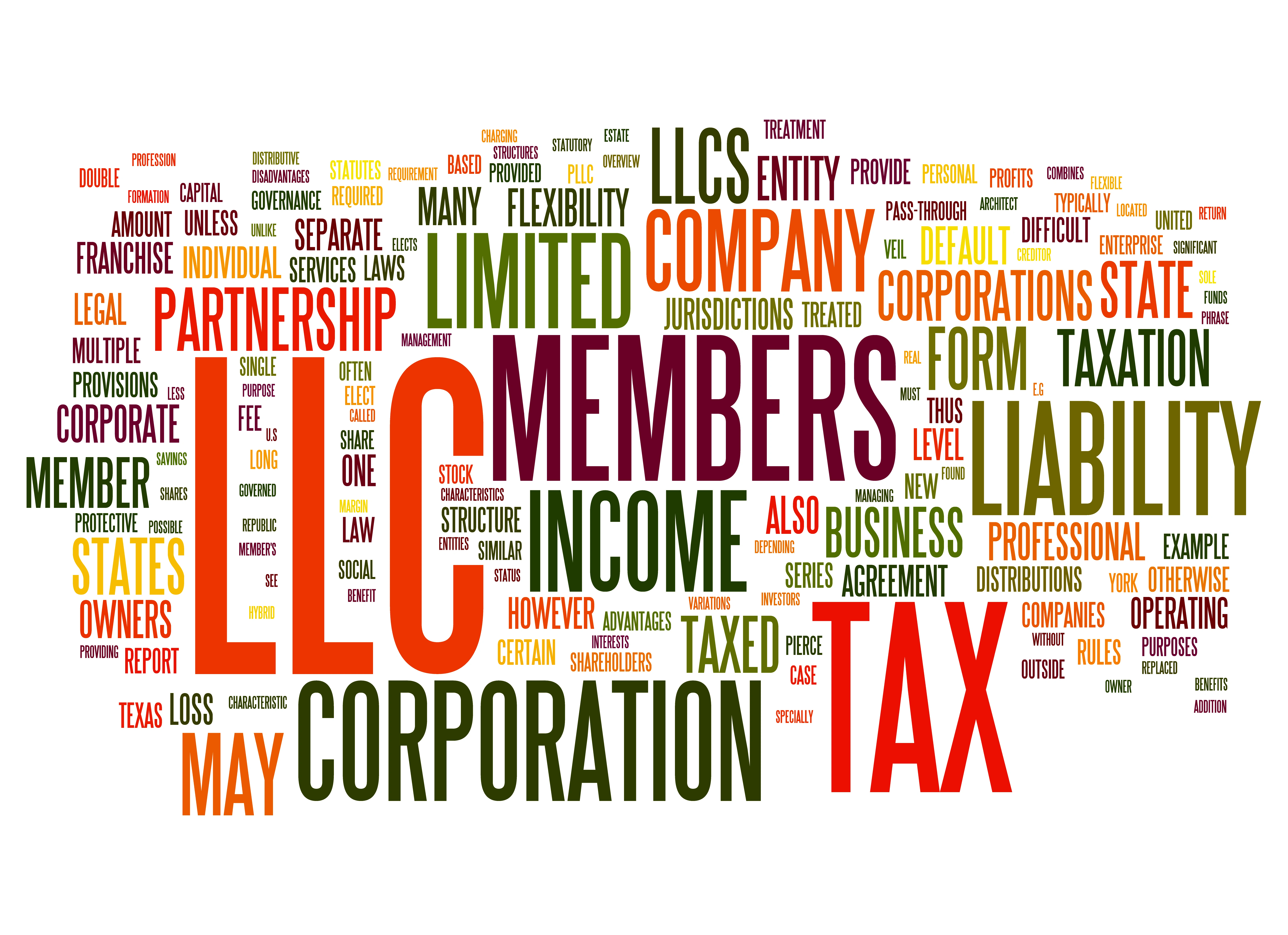Introduction to PLLCs and S-Corps
In the world of psychotherapy, structuring your business efficiently can make a significant difference in your financial health. Two common business structures are Professional Limited Liability Corporations (PLLCs) and Subchapter S Corporations (S-Corps). Each has unique advantages and implications, particularly concerning taxes. This blog post aims to educate psychotherapists about these structures and help them decide whether converting to an S-Corp is beneficial for their practice.
Understanding PLLCs (Professional Limited Liability Corporations)
Definition of PLLCs
A Professional Limited Liability Corporation (PLLC) is a type of business entity designed for licensed professionals, such as psychotherapists. It combines the liability protection of a corporation with the flexibility of a partnership.
Legal Structure of PLLCs
PLLCs are governed by state laws, which means their formation and operation rules can vary. Generally, PLLCs must be formed by licensed professionals, and the liability protection covers professional malpractice, limiting the personal liability of the owners.
Advantages of PLLCs
- Liability Protection: Members are not personally liable for business debts and liabilities.
- Flexibility in Management: PLLCs offer flexible management structures, allowing for either member-managed or manager-managed setups.
- Pass-Through Taxation: Profits and losses can be passed through to the members’ personal tax returns, avoiding double taxation.
Disadvantages of PLLCs
- Self-Employment Taxes: Members must pay self-employment taxes on their share of the profits.
- State-Specific Regulations: Compliance requirements can vary widely from state to state.
- Limited Growth Potential: PLLCs might face restrictions on the number of members and the types of investors they can attract.
Understanding S-Corps (Subchapter S Corporations)
Definition of S-Corps
An S-Corp is a corporation that elects to pass corporate income, losses, deductions, and credits through to their shareholders for federal tax purposes. Shareholders report income and losses on their personal tax returns, and taxes are assessed at their individual income tax rates.
Legal Structure of S-Corps
S-Corps are limited to 100 shareholders and must be domestic corporations. They can only issue one class of stock and cannot have shareholders who are non-resident aliens.
Advantages of S-Corps
- Tax Savings: S-Corps can help reduce self-employment taxes by designating a reasonable salary to the owner, with the remaining profits distributed as dividends.
- Business Credibility: Incorporating as an S-Corp can enhance the credibility and professionalism of your business.
- Employee Benefits: S-Corps can offer a variety of employee benefits that are deductible as business expenses.
Disadvantages of S-Corps
- Increased Administrative Work: S-Corps require more record-keeping and reporting than PLLCs.
- Strict IRS Requirements: The IRS imposes strict criteria for S-Corp status, including limitations on the type and number of shareholders.
- Potential Risks: Misclassifying expenses or salaries can lead to penalties and increased scrutiny from the IRS.
Comparative Analysis: PLLCs vs. S-Corps
Legal Differences
PLLCs and S-Corps are both separate legal entities from their owners, providing liability protection. However, PLLCs are specifically for licensed professionals and are governed by state laws, while S-Corps are recognized at the federal level with specific IRS regulations.
Tax Differences
PLLCs typically operate with pass-through taxation, where profits are taxed at the individual level. S-Corps also use pass-through taxation but offer potential tax savings by splitting income into salary and dividends, reducing self-employment taxes.
Management Differences
PLLCs offer flexible management structures, whereas S-Corps require more formal management with a board of directors and officers.
Operational Differences
S-Corps have stricter operational requirements, including regular meetings and detailed record-keeping. PLLCs have fewer formalities but must comply with state-specific professional regulations.
Tax Implications for PLLCs
Self-Employment Taxes
Members of a PLLC are subject to self-employment taxes, which cover Social Security and Medicare contributions. This can be a significant tax burden, particularly for higher-income earners.
Income Taxes
PLLCs do not pay corporate income taxes. Instead, income is reported on the members’ personal tax returns, and taxes are paid at individual rates.
Tax Deductions
PLLCs can deduct business expenses such as office rent, supplies, and professional development costs. These deductions reduce taxable income, providing some tax relief.
Tax Implications for S-Corps
Payroll Taxes
S-Corp owners who are also employees must pay themselves a reasonable salary, subject to payroll taxes. However, profits distributed as dividends are not subject to self-employment taxes, potentially lowering overall tax liability.
Dividend Distribution
Dividends paid to shareholders are not subject to payroll taxes, providing a tax-efficient way to distribute profits.
Tax Deductions
S-Corps can deduct business expenses similar to PLLCs. Additionally, certain employee benefits and retirement contributions can also be deducted, offering further tax advantages.
Benefits of Converting to an S-Corp
Tax Savings
Converting to an S-Corp can significantly reduce self-employment taxes. By paying a reasonable salary and taking the rest of the income as dividends, psychotherapists can lower their tax burden.
Business Credibility
Incorporating as an S-Corp can enhance the professionalism and credibility of a psychotherapy practice, making it more attractive to clients and potential partners.
Employee Benefits
S-Corps can offer a range of employee benefits, including health insurance and retirement plans, which can be deducted as business expenses, further reducing taxable income.
Challenges of Converting to an S-Corp
Increased Administrative Work
Maintaining S-Corp status requires more administrative effort, including detailed record-keeping, regular board meetings, and compliance with IRS requirements.
Strict IRS Requirements
The IRS imposes stringent criteria for S-Corp eligibility, and non-compliance can lead to penalties or loss of S-Corp status.
Potential Risks
Misclassifying expenses or failing to pay a reasonable salary can trigger IRS audits and penalties, making careful financial management essential.
Steps to Convert a PLLC to an S-Corp
Assessing Eligibility
Ensure your business meets the IRS requirements for S-Corp status, including the number of shareholders and types of stock.
Filing Form 2553
To elect S-Corp status, file Form 2553 with the IRS. This form must be submitted no later than two months and 15 days after the beginning of the tax year in which the election is to take effect.
Adjusting Payroll
Set up a payroll system to pay yourself a reasonable salary, ensuring compliance with IRS guidelines. I use ADP. However, there are some great services, including Gusto.
Legal Considerations When Converting
State Laws
Check state-specific regulations regarding the conversion of PLLCs to S-Corps, as requirements can vary.
Federal Regulations
Ensure compliance with federal laws governing S-Corps, including shareholder limits and stock classifications.
Compliance Requirements
Maintain ongoing compliance with state and federal regulations to avoid penalties and ensure the benefits of S-Corp status.
Financial Considerations When Converting
Cost of Conversion
Consider the costs associated with converting to an S-Corp, including legal fees, accounting costs, and potential tax implications.
Ongoing Costs
Factor in the ongoing administrative costs of maintaining S-Corp status, such as payroll services and additional record-keeping. Your accountant should help you in deciding whether the conversion makes financial sense.
Financial Planning
Develop a comprehensive financial plan to manage the transition and ongoing operations of your S-Corp, ensuring long-term financial stability.
Consulting with a Tax Professional
Importance of Professional Advice
Seek guidance from a tax professional to navigate the complexities of converting to an S-Corp and maximize tax benefits.
Finding the Right Advisor
Look for a tax advisor with experience in both PLLCs and S-Corps, particularly within the healthcare or psychotherapy fields.
Questions to Ask
Prepare a list of questions to discuss with your tax advisor, including potential tax savings, compliance requirements, and financial planning strategies.
FAQs About PLLCs and S-Corps
What is a PLLC? A PLLC is a Professional Limited Liability Corporation, a business entity designed for licensed professionals that combines liability protection with partnership flexibility.
What is an S-Corp? An S-Corp is a Subchapter S Corporation that allows income, losses, deductions, and credits to pass through to shareholders for federal tax purposes.
How does the taxation differ between PLLCs and S-Corps? PLLCs typically use pass-through taxation, where profits are taxed at the individual level. S-Corps also use pass-through taxation but can reduce self-employment taxes through salary and dividend distributions.
What are the advantages of converting to an S-Corp? Advantages include potential tax savings, enhanced business credibility, and the ability to offer employee benefits that are deductible as business expenses.
Are there any disadvantages to converting to an S-Corp? Disadvantages include increased administrative work, strict IRS requirements, and potential risks of misclassifying expenses or salaries.
How do I start the conversion process? Start by assessing eligibility, filing Form 2553 with the IRS, and adjusting your payroll to comply with IRS guidelines.
Conclusion
Converting a psychotherapy practice from a PLLC to an S-Corp can offer significant tax benefits and enhance business operations. However, it requires careful consideration of legal and financial implications, as well as ongoing compliance with IRS requirements. By consulting with a tax professional and planning meticulously, psychotherapists can make a well-informed decision that supports their long-term business goals.





